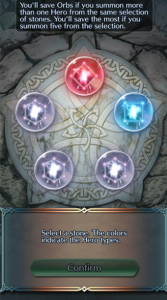This past week, I finally joined the masses with getting my first Smartphone. The second I got home, I quickly went to the play store to install all the crazy mobile games I’ve heard my friends talk about over the last few years. I’ve talked about my thoughts on mobile gaming in the past without having a Smartphone to actually see it firsthand. Now that I do, my opinion has gotten even worse on the market.
The Design:
After all the game’s I’ve played and analyzed over the years, it has gotten very easy for me to pick apart design systems. With the games I looked at, I could tell within a minute of play what the premium currency was and how it was going to be used against me. My favorite part is how every game follows the same exact pattern of play and introducing the player to the monetization model.
I outright refuse to play any games with energy/pay or wait mechanics, which immediately trims down the list of mobile games dramatically.
The different games had varying degrees of gacha or lootbox designs to them. Having played lootbox-element games on the PC, seeing them in their native environment has soured me even more on them. There’s just something wrong about playing a game where real progression is tied to how lucky I get with a slot machine.
Skill, for many of the “best” mobile games is secondary to dumb luck in terms of getting rewards. After spending two minutes playing Fire Emblem Heroes and looking at the Gacha system, I could see the writing on the wall and uninstalled it.
Speaking about Gacha, that is the perfect segue-way into the next problem.
The Monetization:
The problems of game devaluation and the race to the bottom have been a factor of console and PC gaming for years now. Looking at things on the mobile market, my brain is having a hard time comprehending why consumers have made it get this bad.
The frequent comment used by people about lowering game prices is because of seeing what free to play games offer. However, are people not seeing the actual cost of progress?
The games I looked at had bundles and monetization options as cheap as $5 a pop, to a staggering $100+. The best part? None of these options actually grant anything substantial to the player. You’re not unlocking new content or gameplay options; you’re simply getting more chances at getting something or premium currency.
The alternative is to hope for a lucky pull or spend a crazy amount of time grinding basic resources. When Fire Emblem Heroes was released last year, within days there were guides put up about how to know when to recreate your account to hopefully get a luckier group of heroes at the start.
Don’t even get me started on games that actual gamify spending money by giving you special rewards based on money spent.
I know people will defend this by saying “What’s the harm? For many people, this is their only game purchase per month.” Except this is the problem: No video game, much less a F2P game, has the value to justify $99 and up micro-transactions.
I can’t even think of a single game purchase that would make me spend $100 on a full priced game, much less one that’s free to play.
And how these games attempt to obscure their currencies is very shady. It’s not just one premium and standard currency, but multiple forms of currencies; with each one able to be purchased obviously. I get a little sick to my stomach every time I see a new Gamasutra article detailing the best ways to generate mobile game revenue. The sad part is that the basics of these games are well defined.
The Progression:
In order to convince people to stick around long enough to start paying, mobile games are designed around very effective progression systems. Similar to the MMOs of the last decade, these games open up with multiple forms of progression and consistent rewards starting out. As you play further, the rewards begin to smooth out and will either require purchases or luck to keep going.
There is good design present, but it’s always being tied to the monetization. In one of the games I tried, I kept receiving offers to watch in-game ads in order to keep playing or get bonus resources. It’s impossible to divorce the game design from the monetization, as every choice, mechanic, and system, are fed through it.
The way the mobile market is designed is honestly scary, because I now understand why designers have trouble taking their game from mobile to PC and vice versa. The two are not easily transferable, and that takes me to a point I made a few years ago.
Sustainability:
A few years ago I made a post saying that Mobile Gaming was not a sustainable market and that it was going to die. Having looked at things personally, my thoughts haven’t changed.
A market whose primary source of income is ad-based and whales is simply not sustainable. When you are trying to convince people to spend upwards of $100 on a single game, what’s going to get them to spend that money on the next game, or the next? This is where the idea of games as a service gets a bad name, as once again, any and all new content and development must go through the monetization system.
I can’t imagine what it must feel like to try and break into the mobile market today as a brand new developer. You’re either trying to directly compete with the big names of the respective genres, or you’re fighting an uphill battle to convince people to spend money on your game.
Last week, I made a video saying that I’m now opening up Game-Wisdom to look at mobile games, with the caveat that they have to be of high quality. I will be shocked if I get more than 10 games that meet my criteria.




